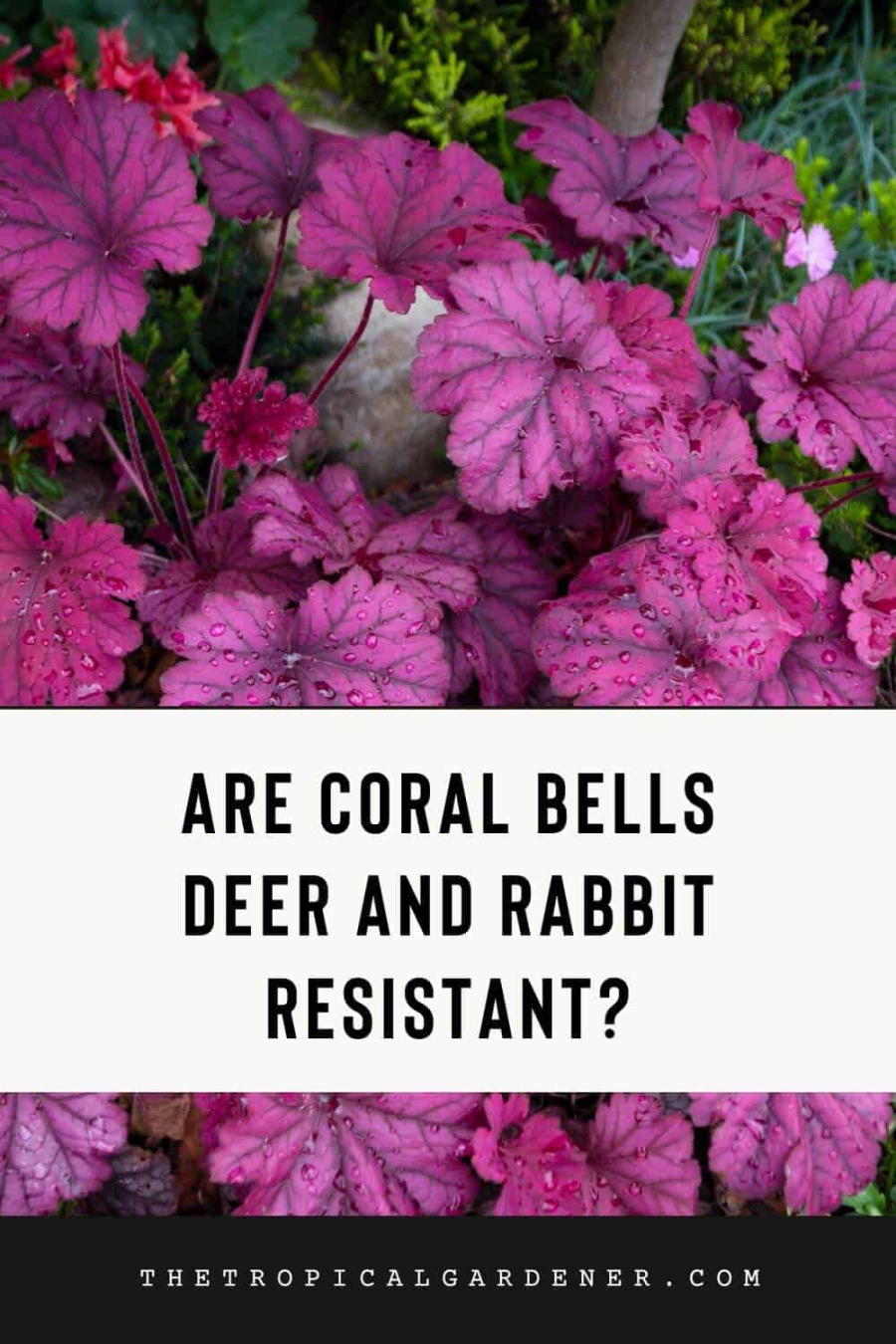Do Rabbits Eat Coral Bells?
Rabbits are known for their voracious appetites and ability to devour a wide range of plants. If you have a garden, you may be wondering if your beloved bunnies have their eyes set on your beautiful coral bells. In this article, we will explore whether rabbits eat coral bells and provide some tips on how to protect your plants from these furry vegetarians.

What are Coral Bells?
Coral bells, also known by their scientific name Heuchera, are popular perennial plants that are cultivated for their vibrant foliage and delicate flowers. They are native to North America and come in a variety of colors, including red, purple, green, and silver. Coral bells are often used in gardens as ground covers or as accents in borders and containers.
Do Rabbits Eat Coral Bells?
While rabbits are known to feed on a wide range of plants, they generally tend to avoid eating coral bells. The leaves of coral bells have a slightly bitter taste, which rabbits find unappealing. This makes coral bells less attractive to rabbits compared to other plants with softer and tastier foliage. However, it’s important to note that hungry rabbits may still nibble on coral bells if no other food sources are available.
How to Protect Coral Bells from Rabbits
If you’re worried about rabbits munching on your beloved coral bells, there are some measures you can take to protect your plants:
- Fencing: Install a fence around your garden to create a barrier that rabbits cannot easily access. The fence should be at least two feet tall and extend about one foot underground to prevent rabbits from burrowing under it.
- Netting and Mesh: Covering your coral bells with netting or mesh can deter rabbits from reaching them. Make sure the netting is secured tightly around the plants and extends to the ground to prevent rabbits from sneaking underneath.
- Natural Deterrents: There are several natural repellents that may help keep rabbits away from your garden. These include cayenne pepper, garlic, and predator urine. Sprinkle these deterrents around your coral bells to make them less appetizing to rabbits.
- Companion Planting: Planting rabbit-resistant flowers and herbs near your coral bells can help deter rabbits. Examples of such plants include marigolds, lavender, and sage. The strong scents of these companion plants can mask the aroma of the coral bells, making them less attractive to rabbits.
FAQs about Rabbits and Coral Bells
Are there any rabbit breeds that eat coral bells?
While rabbits may have individual preferences, there are no specific rabbit breeds known for their affinity for coral bells. The majority of rabbits tend to avoid eating them due to their bitter taste.
Can rabbits cause significant damage to coral bells?
Generally, rabbits do not cause significant damage to coral bells since they are not a preferred food source. However, hungry rabbits may nibble on the leaves, leading to some aesthetic damage.
Are there any other pests that eat coral bells?
While rabbits are not a major threat to coral bells, there are other pests that may cause damage. Slugs and snails, for example, can feed on the leaves and flowers of coral bells. Regular monitoring and appropriate pest control measures can help protect your plants.
Can rabbits be beneficial to coral bells in any way?
While rabbits may not be directly beneficial to coral bells, their droppings can act as a natural fertilizer. Rabbit manure is high in nutrients and can improve the soil quality, leading to healthier plants overall.
In conclusion, while rabbits generally tend to avoid eating coral bells due to their bitter taste, hungry rabbits may still nibble on the leaves if no other food sources are available. To protect your coral bells, consider installing a fence, using netting or mesh, applying natural deterrents, or planting rabbit-resistant companion plants. By taking these preventive measures, you can enjoy the beauty of your coral bells without worrying about them becoming a rabbit’s delicacy.
Related Articles…
Copyright Notice:
All images on this website are obtained from the internet and remain copyrighted to their original owners. If you hold copyright to any image and want it taken down, please reach us.